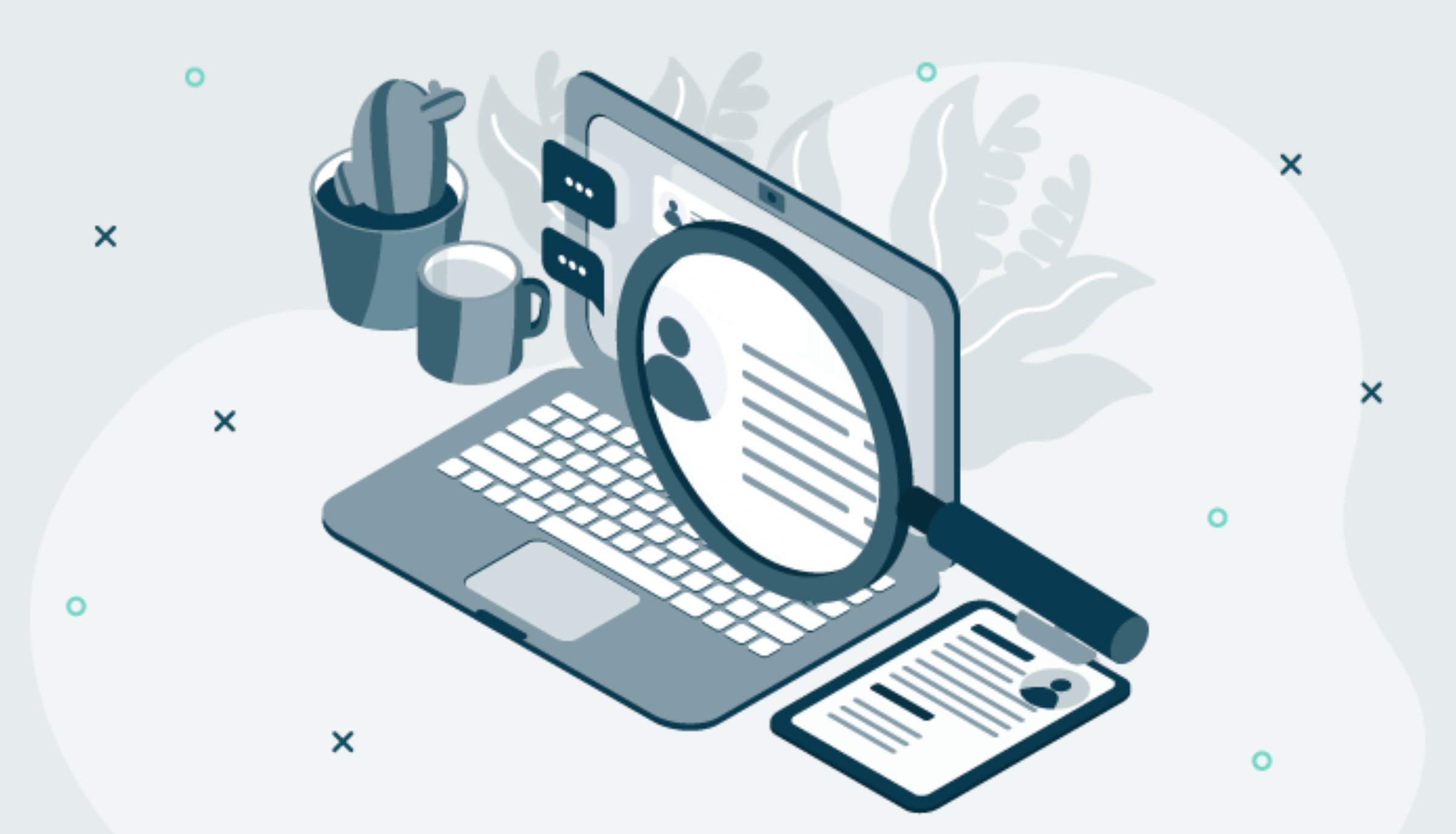Even the smallest mistakes can cost a company or an individual lots of money. This is why attention to detail is important when it comes to many job interviews.
Employees who have attention to detail are likely to identify errors and prevent them from causing large damages. Oftentimes in business it’s not about doing any genius-level, but simply avoiding do anything careless that can cost you.
So employers often want to work with employees that make few mistakes when they handle projects, assignments, or other tasks.
Having attention to detail will make you more effective and productive at work and help the overall success of the company.
When companies consider candidates, those who are more oriented toward details are more likely to be considered.
It’s generally more true that people toward the top of a corporate hierarchy will set out a “higher-level” vision for what the company should do, while those lower on the hierarchy will focus on the details and turning those visions into realities through their specific skill sets and know-how.
Table of Contents
What Is Attention to Detail?
Attention to detail involves being accurate and thorough while completing tasks. Having attention to detail can sometimes be consuming, like editing a long article, but those with naturally high attention to detail can tackle these tasks effectively and efficiently and without enabling distractions to infringe on your productivity.
Hiring managers often use attention to detail as a way to describe a candidate or a candidate’s CV. So showing this skill is valuable to help land yourself a good job.
Having teams with detail-oriented workers can make sure that mistakes don’t go unnoticed and provide a great finished product. Even the smallest error can have an outsized impact on a team’s or company’s performance.
Attention to Detail Skills
Attention to detail doesn’t come naturally to some. Some are bigger picture and don’t concern themselves with the finer points. Others have more attention to the small stuff but might not be great with the bigger picture.
If one person has their “head in the clouds” and another is focused on the smaller stuff, they could actually make a complementary pair in a team. They’ll each contribute things that the other might miss.
If you have great attention to detail, this will come in handy when it comes to editing legal documents. But it may not come in handy when deciding the big projects to pursue that are going to drive revenue, which might be better left toward a big-picture thinker.
Attention to detail doesn’t come naturally to everyone. But anyone can get better at it with practice.
Here are some of the best attention to detail skills to develop to help generate more value for any organization:
- Active listening
- Analytic thinking
- Observation skills
- Organizational skills
- Time management
Active Listening Skills
Active listening is the ability to hear and comprehend what is being said.
Active listening is best done by removing distractions so that you can totally focus.
It may also be helpful to have a way of jotting down notes as it pertains to either things they say or things that you want to say when the time comes.
Sometimes when you’re so focused on what you want to say that you end up tuning out of the person talking or interrupt them. This is the opposite of active listening skills.
Restating what the speaker is saying can also help with active listening. Interruptions should be avoided.
In the context of meetings, it can help to give the speaker two minutes to finish what they’re saying without the fear of being interrupted by more dominant voices.
Some skills to work on include:
a) Making eye contact. This shows that you’re attentive and focused on listening to what’s being said.
b) Providing feedback by paraphrasing what’s being said or by asking questions to ensure clarification. This enables you to follow the speaker’s line of thinking.
c) Showing interest in what’s being said. This includes things like open body language – e.g., sitting upright, nodding when appropriate.
d) Listening all the way through before coming to conclusions.
It’s tempting when someone starts talking to fill in the blanks. Sometimes people will listen to part of a sentence and think they already know where the person is going.
In the process, they end up zoning out and forgetting to listen, then chiming in at the end with erroneous assumptions about what they said and conclusions that don’t follow.
Analytical Thinking
Analytical thinking involves the set of skills involved in observing, researching, studying, and processing a range of information to draw insights and solutions.
Analytical thinking pertains to tasks like brainstorming, researching, analyzing data, improving products or services, identifying new clients or projects to take on, solving problems, and making decisions.
Employees that have strong analytical thinking skills have the ability to analyze a situation and formulate a solution to the problem.
Analytical thinking is involved in most forms of work and helps you add more value with respect to what’s best for the organization.
Observational Skills
Observational skills involve being aware of your surroundings. This means being aware of situations, events, and people and analyzing what you see.
Observational skills inform your other skills. By being more observant you can become a better listener and help reinforce your analytical skills to analyze what you see.
By improving your observational skills you can become a better listener and improve your attention to detail.
Effective employees make a habit of listening well and being aware of their surroundings so they’re always up to speed.
Improving your observational skills can be done by watching people in more crowded areas, seeing patterns where they exist, and observing new things.
Instead of being on your phone when out in public, consider observing things happening around you.
Organizational Skills
Organizational skills entail creating order and structure to enhance productivity while completing the most important tasks to achieve the desired outcome.
Everyone only has so much time and energy. Organizational skills involve how well this is utilized.
Those with good organizational skills avoid poor work habits. These include things like avoiding procrastination, miscommunication, and other forms of inefficiency.
Keeping one’s desk and workspace organized can also help. A clean workspace tends to also declutter one’s mind.
Being well-organized can help your attention to detail and improve your working efficiency.
An employee’s organizational skills become apparent in how they communicate and collaborate with coworkers as well as how they build and manage teams for various projects.
There are also various organizational tools to help you stay organized and become more efficient, from Chrome extensions, project management software, time trackers, calendars, and other software tools.
Time Management Skills
Time management is an essential part of productivity.
Productivity is always measured as an amount of output per unit of time.
Time management goes hand in hand with your ability to organize. How much you accomplish will be dependent on how you manage your tasks, time within the day, and events that come up.
Generally, if you stay organized, you’ll be more efficient and more productive, enabling you to get more done and/or have more time to spend on other things. You’ll also be less stressed.
On the flip side, not managing your time well can lead to underwhelming results. You might suffer from inefficiency, missed deadlines, reduced work quality, and higher stress.
Some ways to improve your time management includes:
- Prioritizing need-to-dos above like-to-do
- Delegating where possible
- Batching tasks together
- Focus and avoid multi-tasking
- Start work earlier
- Use software and other tools to help you manage your time and complete work more efficiently
How to Improve Your Attention to Detail
Attention to detail takes practice and can be improved over time even if you normally aren’t a detail-oriented person.
But there are many concrete steps you can take to improve attention to detail.
Here are a few:
Focus on Being Organized
Being organized a key step. You can start by ensuring that all obligations are on your calendar.
Things like to-do lists (on your phone, computer, or regular pen and paper) is helpful for daily and weekly taks management.
Whether you work from a corporate office of work from home, having a clean workspace and a decluttered desk can help you avoid distractions to keep focus.
Eliminate Distractions
Many tasks require full attention. It can be helpful to silence your phone or even turn it off. If you’re writing something on a Word doc, it can even be helpful to turn off your Wi-Fi. That way you won’t be tempted to check the score or anything else that might cause you to procrastinate.
Some things require focusing on one thing at a time.
Turn Big Goals into Smaller Steps
The things you want to accomplish generally require a series of steps to accomplish them.
Oftentimes things take a lot more time than you expect them to.
It can be helpful to split them up into a smaller set of logical steps that will take you from beginning to end.
By breaking things into smaller goals, you’re also forcing yourself to have more attention to detail.
Read and Re-Read
When we read things more than once, we often take in more than we understood the first time.
In other words, we’re taking in more details that we might have missed the first time.
When it comes to anything, take the time to read/scan, then re-read once or more. This will help you spot things you may have missed before.
Meditation
Meditation can help improve focus, reduce stress, and improve your equanimity.
This will help your memory, your attention to detail, and your overall health.
Take Breaks
A lot of your best ideas won’t come to you when working or trying to work. They’ll come to you when you’re thinking about nothing at all, like getting a great idea when taking a warm shower.
We’re not machines and all need time off.
Try to take regular breaks of appropriate sizes during your work day.
Use Technology and Software
Use timers, task trackers, project management software, and other tools to record how much time you’re spending on a task or activity, stay organized, and help you improve your productivity.
Some of these tools can also help you discover what distracts you (e.g., social media), so you’re able to focus and improve your attention to detail.
Attention to Detail Examples
Attention to detail is especially important when applying for a job. Resumes and CVs need to be close to perfect.
You’ve probably heard stories of hiring managers disqualifying candidates just because there are minor errors or typos in a resume.
It may be harsh, but employers want detail-oriented employees.
In an interview, they want to see that you have time management skills, analytic thinking, active listening skills, and organizational and observational skills.
Below are a few examples of attention to details:
Resume writing
A resume or CV that is well-structured and error-free is a good way to show attention to detail.
Give examples of your attention to detail in the description of each position (or project) you held as a way to show your value to an organization.
Job interview
If a hiring manager wants to test your attention to detail, they may ask you questions related to this to test your skills.
Also, be sure to dress well and arrive early enough to be on time. Be sure to research the organization fully.
Design jobs
Design jobs require attention to detail.
Anything involving craftsmanship will require attention to detail from start to finish.
Editing and proofreading
If you’re an editor, you need attention to detail to spot errors in grammar, punctuation, and even flow (and, of course, content and facts).
Jobs like proofreading, editing, copywriting, resume writing, content writing, blogging, article writing, and other types of tasks require strong attention to detail.
This is also true of video.
Communication
Communication is not always easy. Everyone has experienced slip-ups when it comes to communication before, only emphasizing the reality of how important attention to detail is when expressing your thoughts or ideas.
When speaking, generating reports, writing emails, and other forms of communication, it’s important to ensure that all details are correct.
Virtually all sectors require attention to detail:
- Accountants have to make sure their calculations and how they book entries are free from errors.
- Pilots need to carefully command an aircraft to ensure the proper maneuvering of the aircraft.
- Editors need to ensure error-free copy to make sure written communications are accurate and trustworthy.
- Engineers need to ensure their calculations and designs are accurate.
Conclusion
Attention to detail is something that all of us have to do to some extent.
It’s one of the first things that employers want in an employee. This starts with your resume and flows through to the interview itself.
Getting your attention to detail skills up to speed (e.g., organization, time management, etc.) will get you closer to landing the job you’ve always wanted.



